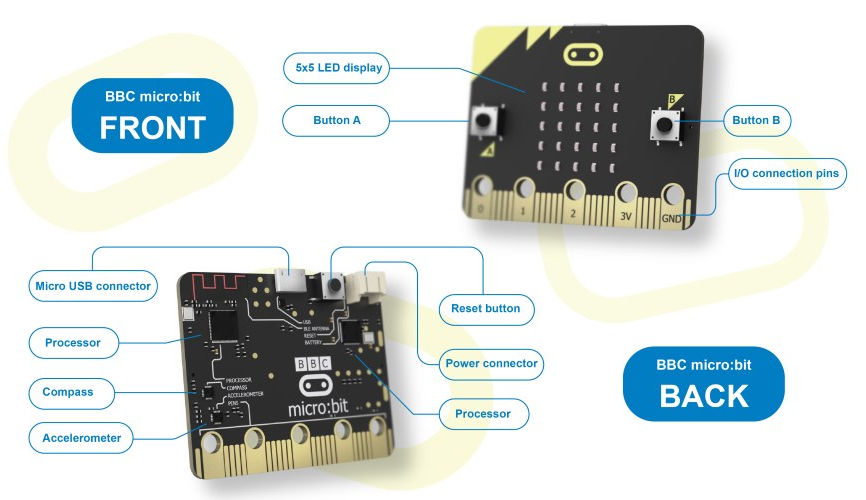

The BBC micro:bit is the spiritual successor of the BBC Micro of the 1980s, which itself introduced a generation of children to computing. The BBC micro:bit carries on this 30 year tradition and does it 18 times faster and is 70 times smaller than its predecessor.
This powerful handheld, fully programmable, computer designed by the BBC and a number of partners to encourage children to get actively involved in writing software and building new things that will be controlled by it.
Featuring a 5x5 LED Matrix, two integrated push buttons and a compass, accelerometer and bluetooth all on-board, the device makes a great introduction to the world of programmable components. The main I/O rings can be used as outputs to control LEDs, motors and much more, and also as inputs to connect external sensors and switches.
The main rings are large enough that young people can easily connect to them with crocodile clips or conductive thread.
Write your code using one of the easy to use editors provided on the BBC micro:bit website, connect your BBC micro:bit to your computer via USB press the compile button in the editor and then drop the downloaded file directly onto your BBC micro:bit. There is also an app for Android devices.
Wirelessly connect and interact with the world around you. Use Bluetooth Low Energy to connect to mobile phones and tablets, take a selfie or drive the music in your playlists. All of this in a device only 5cm wide!

micro:bit Coding lession at Tangs











